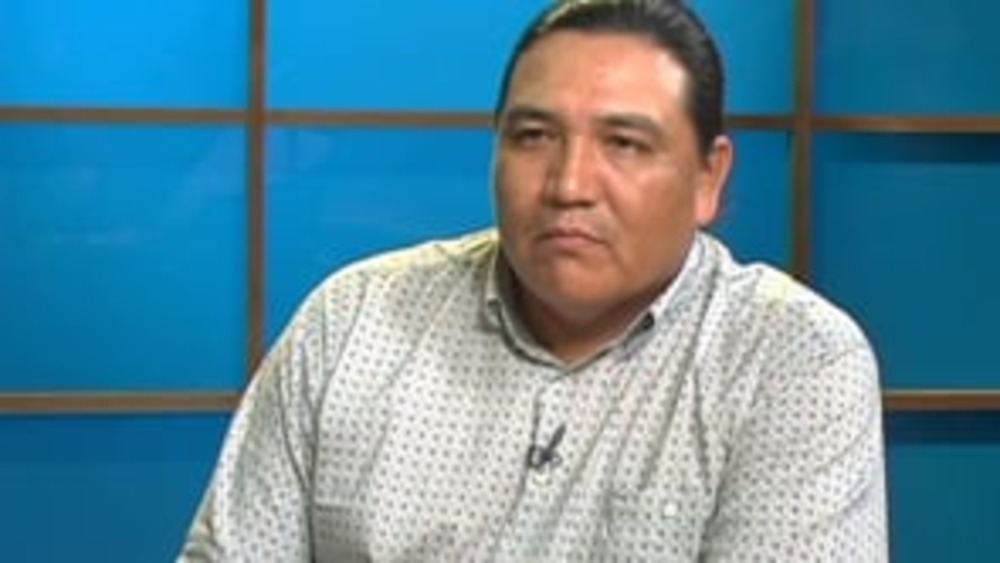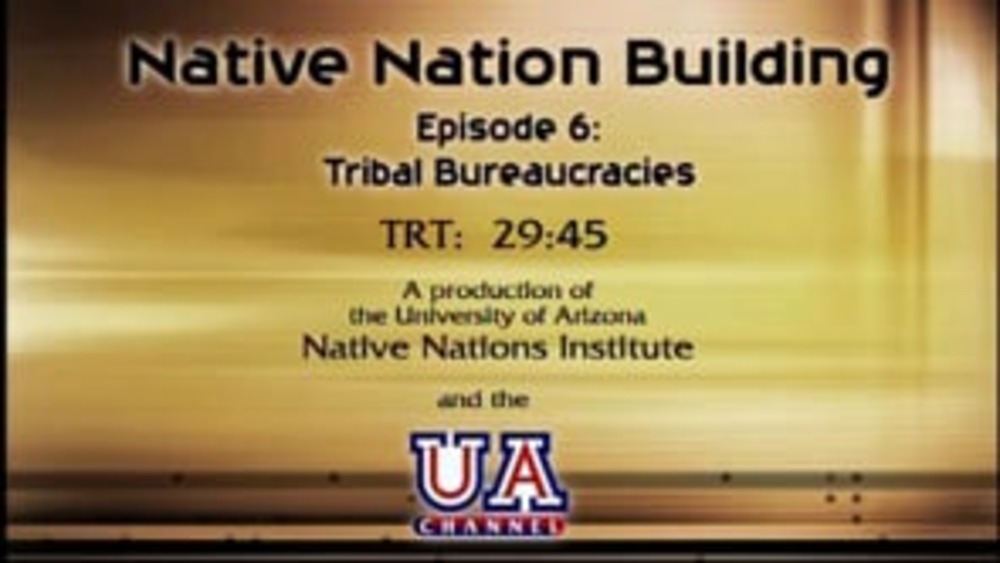Native leaders discuss the critical role that bureaucracies play in Native nations' efforts to achieve their nation-building and community development priorities.
Additional Information
Giff, Urban. "A Capable Bureaucracy: The Key to Good Government" (Episode 6). Native Nation Building television/radio series. Native Nations Institute for Leadership, Management, and Policy and the UA Channel, The University of Arizona. Tucson, Arizona. 2006. Television program.
LaPlante, Jr., Leroy. Native Nations Institute for Leadership, Management, and Policy, University of Arizona. Tucson, Arizona. August 12, 2010. Interview.
Mankiller, Wilma. Native Nations Institute for Leadership, Management, and Policy, University of Arizona. Tucson, Arizona. September 29, 2008. Interview.
Pico, Anthony. "Building Great Programs in a Political Setting." Honoring Nations symposium. Harvard Project on American Indian Economic Development, John F. Kennedy School of Government, Harvard University. Cambridge, Massachusetts. September 10, 2004. Presentation.
Transcript
Urban Giff:
"Well, I once equated that to and compared it to the older customs of tribes, my tribe included as well as other tribes, in which the villages of the tribe were safeguarded by sentries and warriors that were away from the villages and they sounded the alarm in case there was danger and they were effective in safeguarding the tribe, the people, their assets. I equated that and compared it to the modern-day tribes. We still need warriors and sentries, but in the field of accounting, in the field of law, in the field of human resources administration, in the field of management, all the functions that a government has to operate under, and that we need qualified warriors in those areas and that's what will benefit the tribes. As the ancient warriors did and benefited their tribes, we still need warriors today."
Wilma Mankiller:
"When I think about developing communities in a real sense, not in an abstract sense, but taking a community and developing the economy, or developing water systems or community buildings or health care or whatever, what I think is that you have to have a strong enabling center to do that. The people who do community development and develop the economy can't go out and do good work unless they have a strong enabling center. And so, again, it's important to have a good accounting system, a good administrative system, and a strong tribal government in order to do that work."
Leroy LaPlante, Jr.:
"You gotta have that infrastructure in place because it's one thing to take a vision and philosophies in terms of how we want to be, but you gotta have the practical policies and infrastructure that get us from point A to point B."
Anthony Pico:
"As Indian nations increasingly take over management of social and economic programs and natural resources on our reservations, as we undertake ambitious development programs or government tasks become more financially and administratively complex, our government infrastructure becomes more essential to overall success. By infrastructure I mean those bodies and directives that help keep the fire lit while the hunters are on the trail. It's the glue that keeps things going when the leadership changes or there's a political crisis. It means attracting and keeping loyal employees and developing and retaining skilled personnel. It requires establishing effective civil service systems that protect employees from politics. It means putting into place solid personnel grievance systems and that decisions are implemented and recorded effectively and reliably. It ensures that businesses and future government officials do not have to reinvent the wheel or lose momentum, but rather are able to build on the success and avoid the failures."



